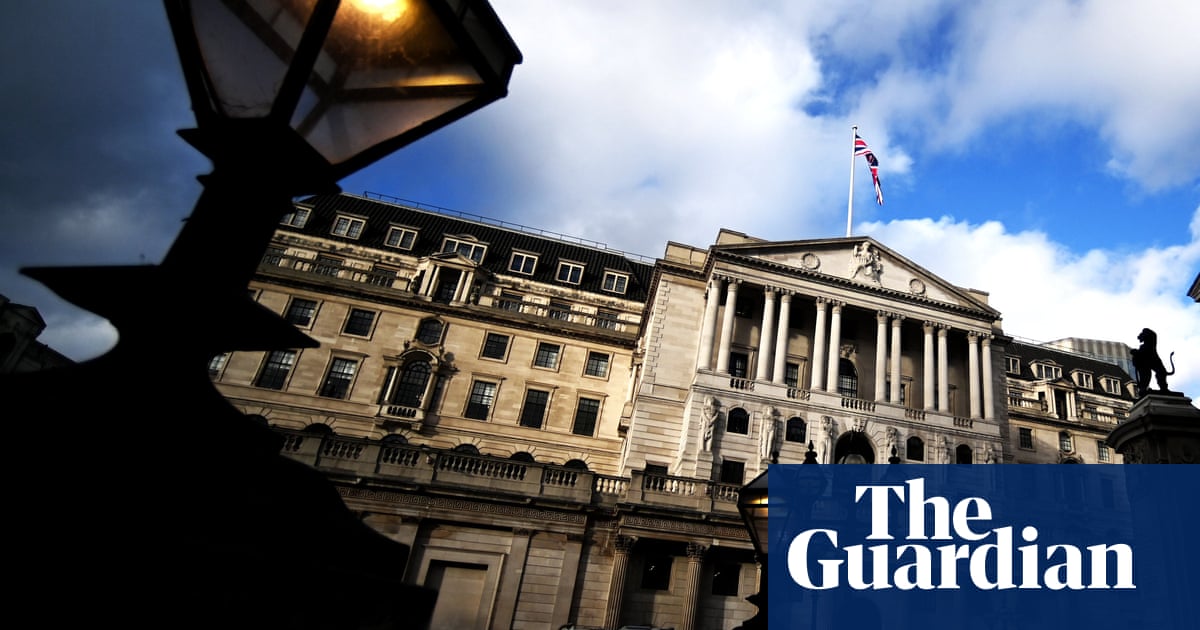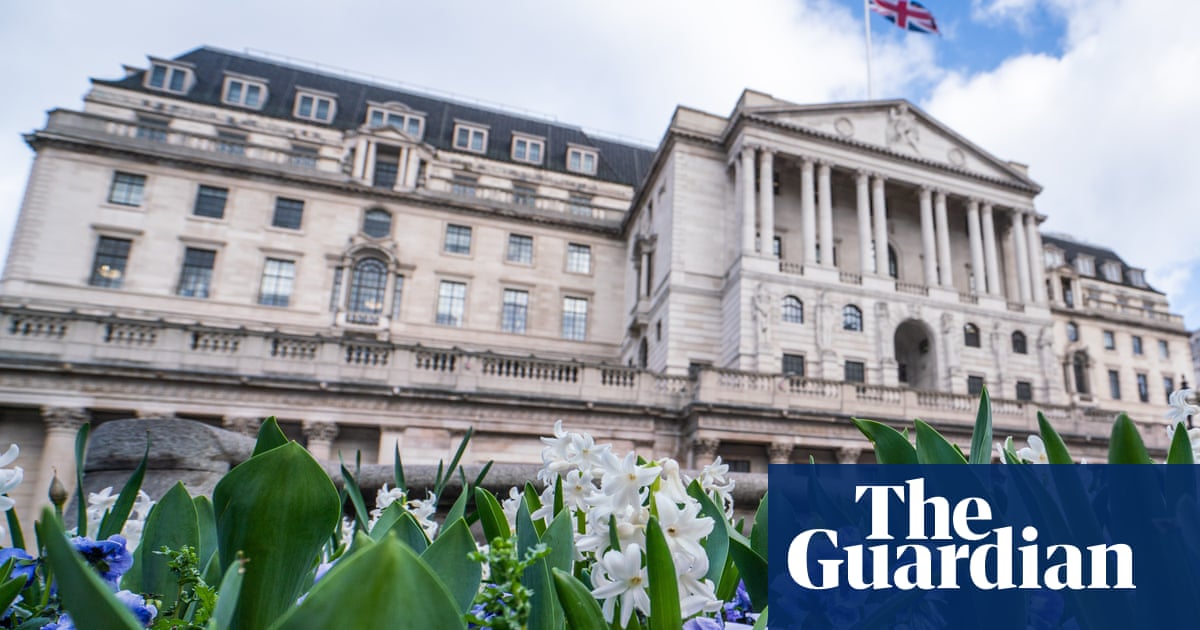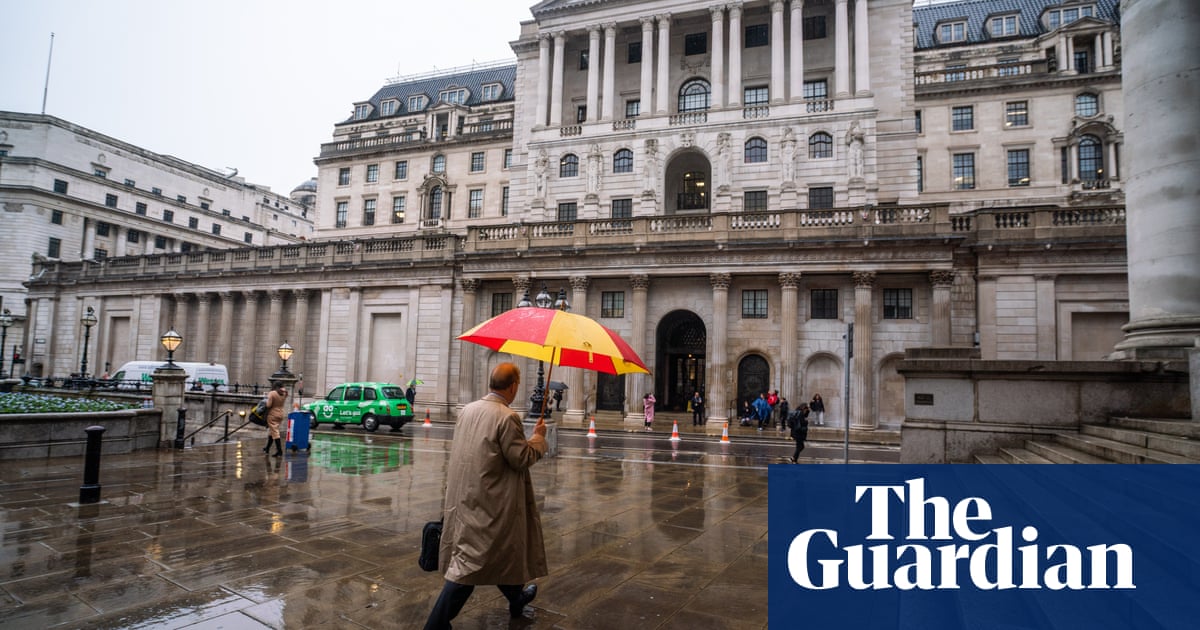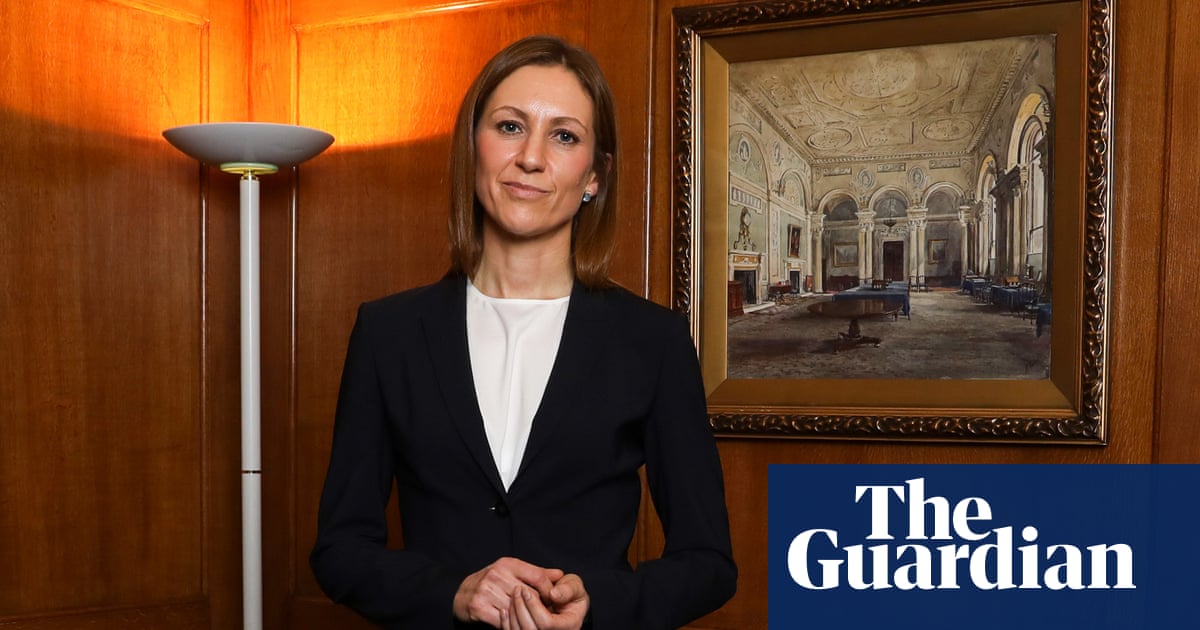
The Bank of England is likely to increase interest rates one more time in May, to 4.5%, before inflation falls “sharply” over the rest of the year, a former rate-setter has predicted.
Michael Saunders, who was a member of the monetary policy committee until August, said the UK was nearly at a “turning point” for interest rates, which have risen sharply over the past year as policymakers tried to curb a surge in prices caused by an increase in energy costs.
He said his former colleagues at the Bank of England would most probably vote for a final increase in May – which would be the 12th in a row – before holding interest rates steady over the following months.
“I think they’ll raise interest rates again at the May meeting another 25 basis points … That’ll take interest rates up to 4.5%,” Saunders told the BBC.
“I think we get this further, probably final, hike in May, and then probably a long period in which interest rates are fairly stable. The big tightening cycle – interest rates going up meeting after meeting – I think that’s largely over and what you’ll see over the rest of this year is inflation crawling lower, interest rates stable.”
Households are likely to breathe a sigh of relief if Saunders’ predictions prove correct, given most have seen bills for groceries, heating and other essential goods soar in recent months. The increases after Russia’s full-scale invasion of Ukraine have piled pressure on the poorest households in Britain, who spend a larger share of their income on essentials.
Saunders said: “The overwhelming factor behind the rise in inflation has been the surge in energy prices – that’s lifted households’ gas and electricity bills, pushed up firms’ cost. So [they’ve] seen a ripple through to higher services inflation, higher goods, price inflation and it’s also contributed to the rise in food prices.”
That, for example, has then resulted in higher prices in stores and restaurant menus, as businesses try to recoup their surging costs. “Those indirect, second-round effects of higher energy costs take a while to come through. They’re not yet finished, but we are probably now past the peak,” he said.
“We are now just about finally at the turning point. With interest rates having gone up pretty sharply … and agricultural commodities coming lower, wholesale energy prices coming off, we’re now likely to see inflation fall pretty sharply over the rest of this year.”
His comments on Radio 4’s Today Programme come days after the Office for National Statistics figures showed inflation fell by less than expected, to 10.1% last month. Economists had forecast a decline to 9.8%.
The likelihood of the Bank of England raising interest rates next month increased after the news about inflation, with markets subsequently pricing in a 97% chance of a rise to 4.5% on 11 May, matching Saunders’ predictions.
Economists at UBS are also predicting a further interest rate rise in May, and are expecting inflation to average 6.5% in 2023 and 2.3% in 2024, before dropping to the Bank of England’s 2% target by the end of 2025.











